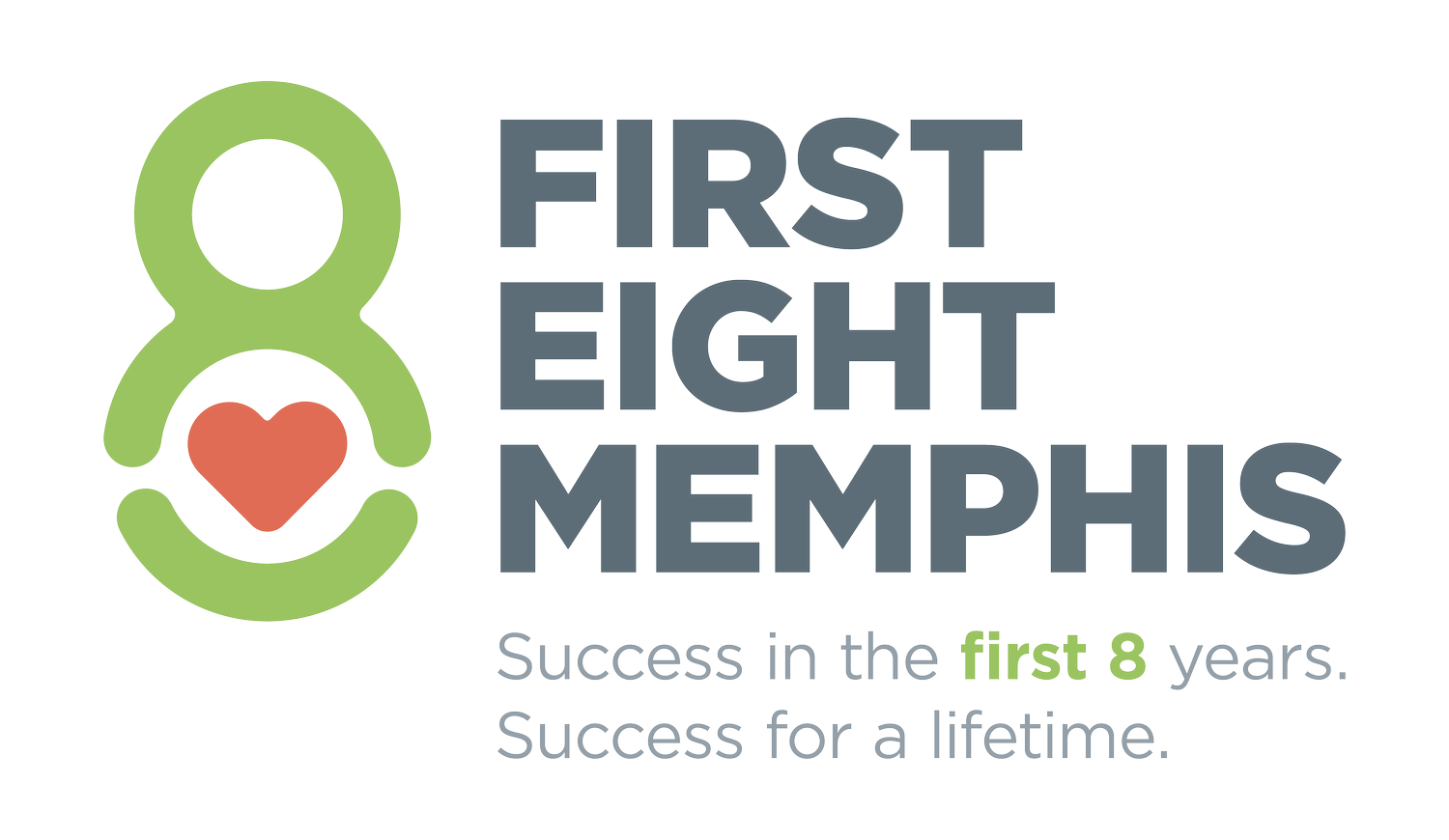Resource Roundup: Nurturing Physical and Mental Health from Birth
By Rachel Ross-Davis, First 8 Memphis Intern Summer 2022 - Spring 2023
When parents and caregivers can provide love, support, and affirmation, children can grow up strong and healthy. Decades of research show that healthy experiences in early childhood are critical for building strong brains and a solid early learning foundation. Beginning at birth, a child’s progress along crucial developmental milestones depends on nurturing, safe, and stable relationships with caregivers and the whole family’s access to health and mental health supports.
As part of Loud Voices for Little Kids, a partner of Tennesseans for Quality Early Education, and a Bright Start Tennessee Network member, First Eight Memphis supports efforts to expand families’ access to health and mental health supports and to strengthen early relational health. Sesame Street in Communities (SSiC) offers tools that help families and caregivers to nurture physical and mental health through impactful and task-oriented information relating to self (caregivers), children, action, and milestones.
Below are examples of the valuable resources and strategies available for parents and providers.
Mindful Parenting
When kids are experiencing big emotions, they need their parents and caregivers to help them manage their reactions, feel safe, and learn to express those emotions. But remaining calm can be tricky. It helps to remember that children are always observing and learning from your behavior. This article from Sesame Street in Communities offers tools to help combat the stressors of parenting, including remaining in the moment, being aware of your feelings, using affirmation-based language, and going to your “happy place” (e.g., a favorite memory or visualized location).
Little Actions Have Big Impacts
Actions speak louder than words, and this Sesame Street in Communities article discusses the positive impact that loving and caring actions can have on a child’s development. Simply hugging or spending quality time with your child can help to build his or her sense of security and the confidence to learn and grow. Talking together, reading, and asking questions can create new language skills, teach new words, and help your child to understand language. Spending time playing together promotes increased creativity and thinking skills. All of these small, positive actions and activities work to increase a child’s development and nurture their well-being. First 8 Memphis understands that parents and caregivers have a unique impact on their child’s development, so our strategy for supporting early development emphasizes creating spaces for children to thrive and advocating for children in Memphis and across Tennessee.
Connecting Parents & Teachers
A positive connection between teacher and parent can be the key to building a healthy classroom environment for your child (see this Sesame Street in Communities Parent Tip Sheet). If your child’s teacher knows his or her best qualities, potential challenges, and motivations, they can be a better ally for academic learning and for fostering social-emotional growth. Things like knowing a child’s special strengths, interests, bilingual abilities, and family background can help the teacher to understand who the child is and the best way to instruct and educate them in the classroom.
Infant and Early Childhood Mental Health
Social and emotional development, or infant and early childhood mental health, is defined as the developing capacity of a child from prenatal to five years old to: 1) form close and secure adult and peer relationships 2) experience, manage and express a full range of emotions, and 3) explore the environment and learn, all in the context of family, community, and culture. (Zero to Three IECMH Infographic)
Places we can promote social and emotional well-being include pediatric health care, early care and education, home visits, judicial systems, policy, child welfare, and early intervention.
Observe, Listen, Wonder, and Response
The four little words “Observe, Listen, Wonder, and Response” are popular with infant and early childhood development professionals as reminders to listen to and engage families in a meaningful way. In this video, Allied Behavioral Health (ABHS) and the Association of Infant Mental Health in Tennessee (AIMHiTN) invite caregivers to use those four words to discover who the babies in their care are and to understand the importance of nurturing relationships past and present to developmental growth and change. (4 little words - ABHS & AIMHiTN PSA)
AIMHiTN focuses on early relational health and how it contributes to healthy families, healthy communities, and a productive workforce for generations to come. AIMHiTN strives to deliver prenatal-6 care and deliver education training and resources to assist caregivers, educators, health care providers and other professionals in their everyday relationships with infants, young children, and their families.
